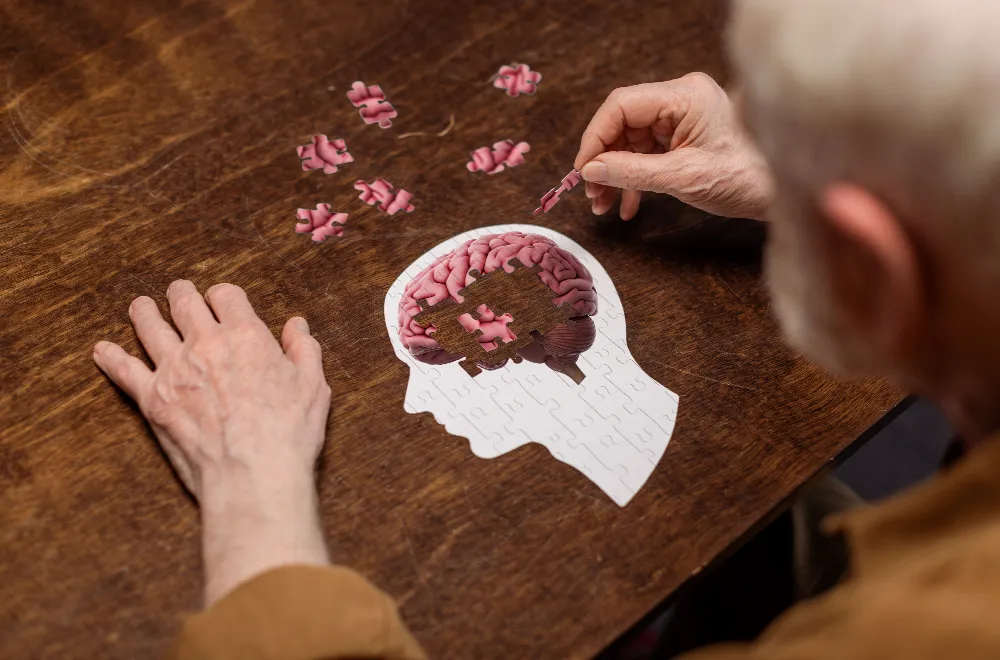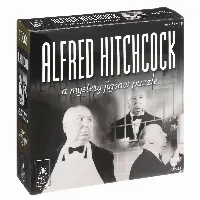Puzzle-Solving for Retirees: Boosting Cognitive Health and Social Connection

Retirement can be a great time to explore new hobbies and activities that bring joy and stimulation to life. One such activity that has many benefits is puzzle solving. Not only is it a fun and engaging pastime, but it also provides cognitive, social, and emotional benefits that are particularly important for retirees.

Cognitive Benefits
One of the primary cognitive benefits of puzzle-solving is that it can help prevent cognitive decline. Research has shown that the brain is like a muscle - it needs regular exercise to stay healthy and strong. Just as physical exercise is essential for maintaining good physical health, cognitive exercise is essential for maintaining good cognitive health. By challenging the brain with puzzles, retirees can keep their minds sharp and active, helping to stave off cognitive decline.
In addition to preventing cognitive decline, puzzle-solving can also help improve cognitive function in specific areas. For example, working on a crossword puzzle requires a great deal of verbal and language processing, making it an excellent activity for improving language skills. Sudoku and other number-based puzzles can improve math skills, while jigsaw puzzles can improve spatial awareness and visual perception. Engaging in a variety of different puzzle types can help retirees improve a wide range of cognitive skills, which can be particularly beneficial for those who want to continue learning and growing as they age.
Another cognitive benefit of puzzle-solving is that it can help improve problem-solving skills. Puzzles require critical thinking and problem-solving skills to identify patterns, make connections between different pieces, and come up with solutions to complex problems. By exercising these skills regularly, retirees can improve their ability to think critically and solve problems in other areas of their lives.
Finally, puzzle-solving can be an excellent way to improve memory skills. Many puzzles require the use of memory, whether it's remembering a clue from earlier in a crossword puzzle or recalling the location of a particular puzzle piece. Regular puzzle-solving can help retirees improve their short-term and long-term memory skills, which can be particularly helpful for those who are concerned about memory loss or cognitive decline.
Social Benefits
One of the primary social benefits of puzzle-solving is that it can provide an opportunity for social interaction and companionship. Retirees often face social isolation and loneliness, which can have negative effects on their mental health. Engaging in group puzzle-solving activities can provide an opportunity for retirees to connect with others who share similar interests, share experiences, and form new friendships. Many community centers, libraries, and senior centers offer puzzle clubs or puzzle groups, providing a structured way for retirees to meet others and socialize.
In addition to providing an opportunity for social interaction, puzzle-solving can also help improve communication skills. Working on a puzzle with others requires communication and cooperation, as individuals need to work together to solve the puzzle. This can be particularly helpful for retirees who struggle with communication or social skills, providing a safe and supportive environment in which to improve these skills.
Puzzle-solving can also provide a sense of purpose and meaning, which can be particularly important for retirees who may feel like they have lost their sense of identity or purpose. Engaging in meaningful activities like puzzle-solving can help retirees feel more fulfilled and satisfied with their lives, providing a sense of accomplishment when a puzzle is completed. Additionally, working on puzzles can provide a sense of structure and routine, which can be helpful for those who struggle with the transition to retirement.
Additionally, puzzle-solving can be a fun and low-pressure way to socialize with others. Unlike many other social activities, puzzle-solving does not require a high level of physical activity or social skill, making it accessible to a wide range of people. This can make puzzle-solving an excellent option for retirees who are looking for a low-pressure way to socialize and engage with others.
Emotional Benefits
One of the primary emotional benefits of puzzle-solving is that it can provide a sense of relaxation and stress relief. Puzzles require focus and concentration, which can be a helpful distraction from everyday worries and stressors. This can be particularly beneficial for retirees who may be dealing with health issues or other challenges in retirement. Engaging in puzzle-solving can provide a sense of calm and relaxation, helping retirees feel more at ease and less stressed.
In addition to providing a sense of relaxation, puzzle-solving can also provide a sense of accomplishment and achievement. Finishing a puzzle can provide a sense of satisfaction and pride, helping retirees feel like they have achieved something meaningful. This can be particularly important for retirees who may feel like they have lost their sense of purpose or direction in retirement.
Puzzle-solving can also be a helpful way to cope with grief or loss. Retirees may experience significant losses as they age, whether it's the loss of a spouse or close friend, or a decline in physical or cognitive abilities. Engaging in activities like puzzle-solving can provide a way to cope with these losses, helping retirees feel more connected and engaged with life.
Lastly, puzzle-solving can be a source of fun and enjoyment, providing a way to engage in a pleasurable activity without the pressure of competition or performance. This can be particularly important for retirees who may feel like they are no longer able to participate in activities they once enjoyed due to physical limitations or other factors. Puzzle-solving can provide a low-pressure way to engage in a fun and enjoyable activity, helping retirees feel more fulfilled and satisfied with their lives.
Final Thoughts
If you have a retiree in your life who you think would benefit from puzzle-solving, there are many ways to get them started. One approach is to introduce them to puzzles that align with their interests. For example, if they enjoy nature, you could get them a jigsaw puzzle with a beautiful landscape scene. Or if they are a fan of a particular TV show or movie, you could get them a puzzle featuring characters or scenes from that franchise. There’s also a wide variety of jigsaw puzzles featuring art and topics from various decades that are perfect for a trip down memory lane. There's no telling what memories and stories could be unlocked.
Another way to get retirees interested in puzzles is to emphasize the social aspect. Consider starting a puzzle club with a group of retirees in your community. You can take turns hosting puzzle nights, where you can work on puzzles together while enjoying snacks and drinks. Additionally, you can encourage retirees to invite friends and family to join them for puzzle-solving sessions, which can create a fun and engaging social activity.
If you want to help your loved one get started with puzzles, one of the easiest approaches might just be to work on a puzzle with them. This can be a great way to bond and spend quality time together while also introducing them to the many benefits of puzzle-solving. With a little encouragement and support, retirees can discover the joys of puzzle-solving and reap the cognitive, social, and emotional benefits that come with this engaging activity.



